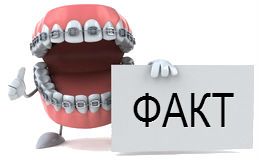Any surgical intervention in the human body can lead to nervous stress and tissue damage. These factors provoke pain, and it occurs as a protective reaction of the body. Therefore, when the anesthesia wears off, the person feels soreness and discomfort.
Why does a tooth hurt after extraction?
The causes of pain are different and depend on many components:
- The number of extracted teeth;
- The presence of an inflammatory process;
- The presence of dental diseases such as stomatitis, periodontal disease, caries, etc.;
- The degree of damage to the tooth;
- chronic diseases;
- The age of the patient;
During tooth extraction, the gums and bone tissues of the patient are injured, and the area of injury expands. The inflammatory process can spread to nearby tissues.
Pain after extraction can appear due to a psychomatic nature. If the patient is hypersensitive, then discomfort and discomfort may accompany him for a month or longer.
Most often, pain syndromes after treatment by a surgeon cause inflammation of the nerve. Alveolitis is the name of this disease. Its characteristic feature is throbbing pain.
Alveolitis does not occur immediately. If the recommendations of the doctor are not followed, it causes severe pain. Washing, antibiotic therapy, as well as soda and herbal rinses will help get rid of inflammation.
Pain can be caused by the injury itself, as well as a wound at the site of the extracted tooth, swelling, hyperemia of the mucosa. Diabetes mellitus, hypertension, poor blood clotting leads to bleeding. This condition causes pain.
How long does a tooth hurt after extraction?
If the gum and socket ache for several days, this is considered normal after such a complex procedure as tooth extraction. As a rule, the first time the patient takes drugs that relieve pain. So it shouldn't hurt too much. In the event that the pain intensifies over time, the swelling does not go away - consult a specialist immediately.
Weakness, enlarged lymph nodes, the smell of rot are characteristic symptoms of the inflammatory process. Immediate contact with the dentist will prevent serious complications.
What else can hurt after tooth extraction
- Often after extraction (especially the eighth tooth) the jaw hurts . Discomfort may persist for several days, accompanied by swelling. Occurs due to tissue damage. Passes on its own.
- Ear pain after visiting a dentist-surgeon can be considered a normal reaction of the body. However, if discomfort persists, then a specialist consultation is necessary. Only he can detect or exclude alveolitis.
- If an adjacent tooth hurts , then it may have been damaged during surgical treatment. But the wound itself can also hurt, but it seems that the neighboring tooth hurts.
- At first, a sore throat is a normal reaction of the body to injury. Unpleasant sensations cause damage to tissues and nerve fibers.
- If the cheek hurts , then the cause is either the injury itself or an allergic reaction.
- The tongue may hurt as a reaction to an injury or due to anesthesia.
- If the head hurts for the first time after surgical treatment, then this is normal. If the headache continues for a long time and radiates to the ear, then most likely there is an inflammatory process.
How to deal with pain?
The following recommendations will help get rid of aching and exhausting pain after tooth extraction:
- If the tooth does not hurt much, a cold compress on the cheek will help relieve discomfort. This method helps to calm the nervous system, accelerate wound healing. The method is effective only in the first hours after extraction.
- For severe pain, you can take painkillers prescribed by the doctor. However, if the pain does not stop within 3 days, then the best solution to the problem is to visit a specialist.
- A solution of salt and soda with the addition of a few drops of iodine will relieve pain after surgery. During the day, rinse the sore spot with this composition often. You can perform the procedure no earlier than two days after extraction.
- Taking antihistamines will help relieve pain if it is caused by an allergic reaction in the body.
- If a complication occurs, the doctor prescribes a course of antibiotics, which you need to drink even when the pain goes away.
- With some complications, the doctor puts stitches to remove the cause of the pain. This procedure is often done after the removal of a wisdom tooth .
- Giving up bad habits helps reduce pain.
- In order not to provoke pain, it is not recommended to eat and drink in the first hours after surgical treatment.
- About three days you can not eat hot, spicy, rough foods.
- Sauna, beach can be visited only on the 4th day after surgical treatment. Also banned for this period are hot baths and hot compresses.
What to do after tooth extraction?
Following the simple recommendations of a specialist, rest and proper care of the oral cavity will help to avoid long-term pain and complications.






